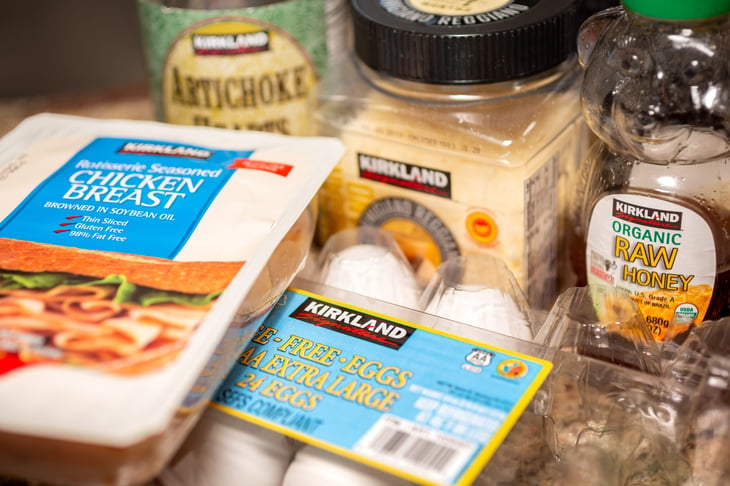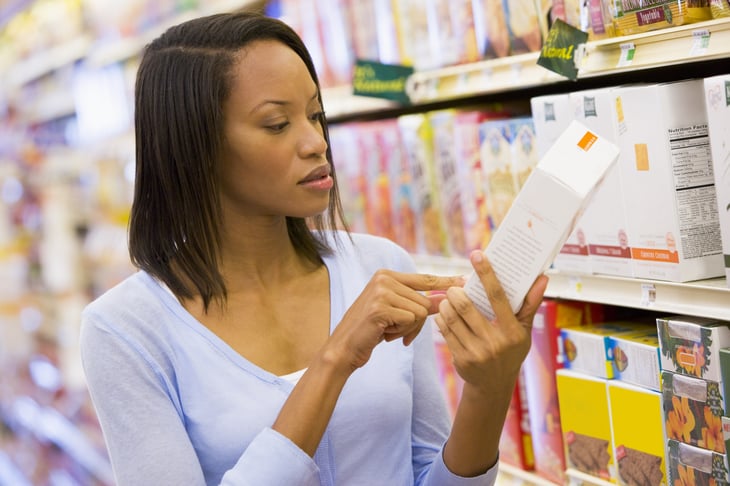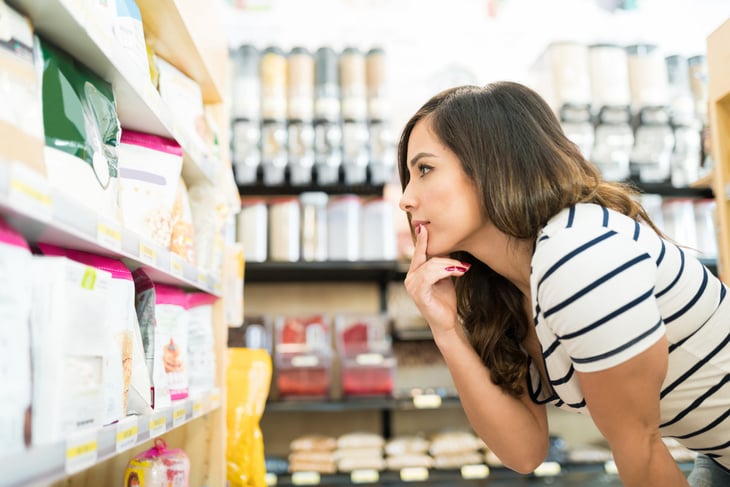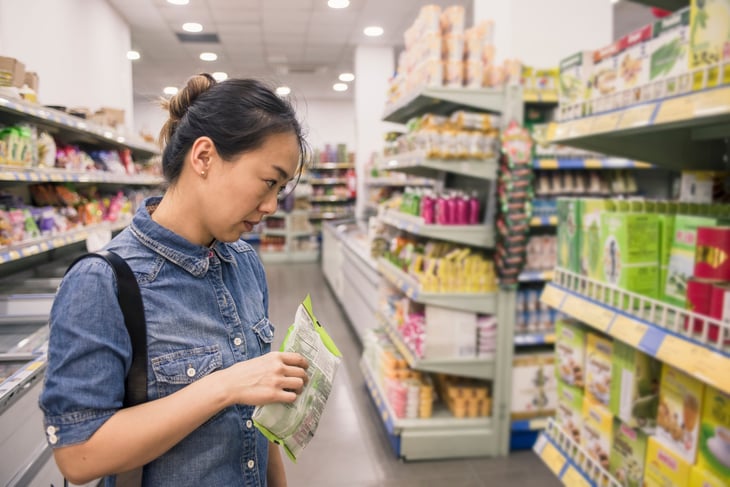
Editor's Note: This story originally appeared on Living on the Cheap.
One of the easiest ways to maximize value for your retail dollar is to buy private label products.
Private label (also called “private brand,” “store brand,” “own brand” or “our brand”) are products made specifically for a retailer and carry the chain’s name or a brand name created exclusively by that retailer for its stores.
No longer limited to a handful of grocery items, private labels span all categories.
You can purchase clothing, electronics, office supplies, toys, kitchenware, tools, linens, pet food and more, often at savings of up to 50 percent.
Why do retailers use store brands?

Retailers love to sell their own brands, even at a discount. The profit margin is higher because they’re not paying the markup for the national brand, says Jeff Galak, an associate professor of marketing at Carnegie Mellon University.
Plus, not only can they avoid spending millions on advertising, but their own products aren’t vying for shelf space. Still, many of us hesitate to bypass familiar brands.
“National brands are good at making consumers feel bad or that you don’t care about your family if you don’t buy their products,” Galak says.
“All a name brand does is reduce uncertainty about the product’s performance and many people are willing to pay more for certainty.”
Here’s what to know before your next shopping trip.
Standards are identical

Store brands must meet the same exacting federal standards and regulations as name brands.
Marty Esarte, group vice president, owned brands for Walgreens, says in many categories (medicines, baby formula, food) products must be tested and approved by the Food and Drug Administration (FDA).
Walgreens employs third-party testing of products outside the FDA’s scope such as vitamins and supplements.
In addition, retailers test their own brands for quality, safety and efficacy.
Consumer testing is also essential, adds Brandon Brown, senior vice present of own brands at Albertsons Companies, with more than 2,200 stores that include Albertsons, Safeway, Vons, Jewel-Osco, Shaw’s and Randalls.
“Ninety percent of Own Brand products that we tested either tasted or performed just as well or exceeded national brand counterparts, and the 10 percent that didn’t perform as well is reformulated,” he says.
Only the label may be different

That private brand dish soap may come off the same assembly line as the name brand, just with a different label.
Large national brand manufacturers that specialize in a particular product sometimes fill excess capacity by making private label brands.
Still, a majority of private label lines are manufactured at plants that exclusively produce store brands, says Jim Griffin, president of Daymon North America, a private label brand agency that helps suppliers and retailers bring brands to market.
And, some retailers operate on a large enough scale to warrant their own manufacturing plants. Albertsons Companies has 19 plants where they produce their own brands including ice cream and refrigerated soups.
You may have already have store brands

While many store brands carry the retailer’s name — Walgreens, Trader Joe’s or Publix — or are associated closely with the retailer such as Target’s up & up, Walmart’s Great Value, Costco’s Kirkland Signature and Whole Foods’ 365 Everyday Value, others are more subtle.
For example, did you know that Lucerne was Albertsons own dairy brand and Open Nature its “free-from” brand?
Or that Cat & Jack is Target’s kids line and Kobalt tool is a Lowe’s private brand?
The only shame is paying too much

Gone are the days when consumers were embarrassed buying no-name canned goods or generic anti-itch cream. Galak recalls shopping for his newborn daughter’s formula supplement.
“Every new parent wants the best for their child, but you quickly find out formula is expensive,” he says.
Galak noticed a name brand and Costco Kirkland formula were in the exact same container, only the Kirkland was half the price. That trip he bought the known brand.
“Then, I did some research and found both products were manufactured in the same factory. The only difference was the label. I bought the Kirkland going forward and didn’t feel guilty doing so.”
Retailers want you to love their own brands

“The challenge for retailers is to connect real brands that customers can’t find elsewhere but our stores and are proud to buy,” Brown says. So, retailers are stepping up their game.
For example, Albertsons Companies recently launched Signature RESERVE Wood Fire Pizza imported directly from Italy.
Walgreens Free & Pure vitamins and supplements are free of gluten, artificial flavors and preservatives, synthetic colors and genetically modified ingredients.
“Private brands have gone from so-called generics to household powerhouses with innovative, unique and standalone products commanding loyalty and demand that can rival even the biggest national brands,” Griffin says.
Do a side-by-side comparison

Retailers make it easy by placing the private label next to the name brand. That’s by design.
“We target specific national brand items to make equivalents, so consumers can easily compare products,” Brown says.
Does the packaging look identical? Like many retailers, Walgreens highlights active ingredients and even includes “compare to XYZ brand” on packaging.
Scan the ingredients. Are the main ones the same and in the same order? For food, compare nutritional labels.
Try it … risk free

Anxious about wading into private label waters? Brown says the best way to get your feet wet is trying the private label brands of staples such as milk, water, eggs, butter, sugar and flour.
You have nothing to lose in trying a store brand.
Most retailers offer a 100% satisfaction/money-back guarantee. Should the product not perform to expectations or even if you don’t like the taste, bring it back for a full refund.
“If you find a private label next to your usual name brand item, get over it and give the store brand a try,” Galek says.
“One product may be unsatisfactory or not to your liking, but I encourage you to keep trying. Doing so will save money in the end.”





Add a Comment
Our Policy: We welcome relevant and respectful comments in order to foster healthy and informative discussions. All other comments may be removed. Comments with links are automatically held for moderation.